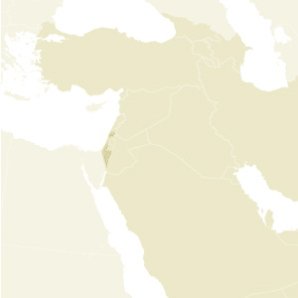
The ability of the United Nations Interim Force in Lebanon (UNIFIL) to implement its mandate has been constantly obstructed by Hizbullah, as this internationally designated terror organization continues to build up its weapons arsenal and military infrastructure, and declares openly that it will continue waging armed conflict against the State of Israel and its civilians. Hizbullah attacks Israel from within Lebanon, limits the freedom of movement of UNIFIL, and prevents access to sites in its area of operation, in flagrant violation of Security Council resolutions, including resolutions 1701 (2006) and 2373 (2017). These actions have been accompanied by frequent violent attacks on UNIFIL and the confiscation of UNIFIL equipment.
The Government of Lebanon has failed to fulfil its responsibility under relevant Security Council resolutions and international law, most strikingly, by failing to ensure that the area between the Blue Line and the Litani River is free of any unauthorized armed personnel, assets and weapons, other than those of the Government of Lebanon and of UNIFIL. Lebanese authorities, including the Lebanese armed forces, fail to permit UNIFIL to carry out its mandate fully, including by preventing freedom of movement and access for investigations.
Against this reality, over the past months and years, Hizbullah time and again has used the UNIFIL area of operation as a launching pad for military attacks against Israel. Recently, these have included, inter alia, sabotaging Israel’s defensive infrastructure south of the Blue Line; launching tactical remotely piloted aerial vehicles from south Lebanon into Israeli sovereign airspace; firing anti-tank missiles at an Israel Defense Forces (IDF) military outpost and an IDF vehicle in northern Israel; and excavating six cross-border assault tunnels from southern Lebanon into Israeli territory, breaching its sovereignty.
Restrictions on UNIFIL operations have significantly undermined its ability to execute its core mission as set forth in Security Council resolution 1701 (2006): to establish between the Blue Line and the Litani River an area free of any armed personnel, assets and weapons other than those of the Government of Lebanon and of UNIFIL. Reports to the Security Council on the implementation of resolution 1701 (2006) are not fully transparent and are incomplete. The serious flaws in the United Nations reporting provide a false picture of stability and calm in Lebanon and create a misperception regarding the ability of UNIFIL to implement its mandate.
Accordingly, concrete steps should be taken to allow UNIFIL to carry out its mandate effectively. Such steps must include, inter alia:
• Increasing the use by UNIFIL of its independent authority, including by operating independently from the Lebanese armed forces, conducting surprise patrols and inspections. Where UNIFIL does not make use of this authority, it should report such and provide detailed explanations.
• Updating UNIFIL operational procedures to shorten both response times to incidents and coordination times.
• Adopting a proactive approach to allow effective operations in the area of responsibility of UNIFIL, in accordance with paragraph 12 of Security Council resolution 1701 (2006).
• UNIFIL must be granted full and immediate access, within a maximum of 48 hours, in its area of operation, including access to private property.
• Implementing procedures for improved identification and verification of suspected violations.
• Improving transparency on UNIFIL independence and freedom of action, and on the level of cooperation it receives from the Lebanese armed forces and other Lebanese authorities, in periodical reports of the Secretary-General on the implementation of Security Council resolution 1701 (2006).
• Including additional information in reports, including detailed maps of UNIFIL operational activities (including where it does not operate) and areas in which its freedom of movement has been restricted. Such information should also be provided to Israel on a regular basis.
• Promptly and thoroughly reporting to the Security Council on impediments or restrictions to UNIFIL freedom of movement or denial of access. UNIFIL should investigate any such case and report to the Security Council within no more than 60 days.
• Ensuring that investigations, both by UNIFIL and by the Lebanese authorities, into suspected violations of Security Council resolution 1701 (2006) are undertaken and completed in a timely fashion and that there are appropriate accountability measures to ensure this.
Israel’s longstanding position is that substantial changes need to be made to the UNIFIL modus operandi in order to implement its mandate effectively. Israel believes that, if such substantial changes are not made, significant elements within UNIFIL operational activities can be downsized.
At the same time, UNIFIL liaison and coordination activities (including tactical and strategic communications, liaison presence along the Blue Line during construction and technical work, assistance with marking the Blue Line and conducting the tripartite mechanism) are very important for reducing tensions and preventing escalation. Here, steps can be taken to further improve these activities, including:
• Strengthening UNIFIL liaison staff.
• Increasing coordination between UNIFIL liaison officers and operational commanders.
• Re-establishing the IDF-UNIFIL communication channels on the tactical level.
• Taking steps to ensure that the tripartite mechanism focuses on issues within the UNIFIL mandate.
• Creating subcommittees within the tripartite mechanism to contend with recurring and important issues.
In light of Hizbullah’s continued activities, proper contingency planning should be conducted between UNIFIL and Israel. UNIFIL should inform Israel regarding its plans for emergency situations, as well as conduct joint planning with Israel for such eventualities.
The UNIFIL Maritime Task Force should remain in place and continue its operations, with greater effectiveness.
As regular transfers of arms by Iran and other countries to Hizbullah continue, it is essential that a special mechanism be established in the United Nations Secretariat to facilitate expanded and more information-based reporting on the arms embargo.

 Articles by this author
Articles by this author

















Stay In Touch
Follow us on social networks
Subscribe to weekly newsletter